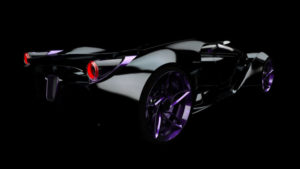In the very strange post-lockdown economy, some Americans are flush with cash, and they’re using that cash to splurge on luxury cars. Teslas, Bentleys, Lambos, and other high-end cars are being snapped up by buyers. Ryan Felton reports in The Wall Street Journal:
More Americans are opting to buy luxury vehicles than ever before, a shift fueled by cash-rich buyers who were able to bank savings during the pandemic and growing wealth among shoppers in the upper-income brackets.
The share of new vehicles sold by luxury brands, like BMW, BMW 1.72%▲ Mercedes-Benz DMLRY -1.74%▼ and Tesla, TSLA 1.51%▲ has steadily grown in recent years, hitting a record 17.3% of the overall U.S. car market in June, according to J.D. Power, a data analytics firm focused on the auto industry. That percentage is up from 14.1% in 2019 and continues a rise that began years earlier, industry data shows.
Sales of luxury cars deemed superpremium—those sold by brands like Lamborghini, Bentley and Ferrari—are still small but have increased to 6,700 vehicles sold through July this year, a 35.6% jump compared with the same period five years ago, J.D. Power’s data shows.
“The wealth is growing, and so the luxury market is growing,” said Alain Favey, board member for sales and marketing at Bentley Motors Ltd., a unit of Volkswagen AG. VOW -1.14%▼
Over the past several years, the expanding pool of affluent people is providing a bigger customer base for brands like Bentley to pursue, Mr. Favey said. And many of these well-off buyers in the U.S. are younger, he said, having amassed wealth in the tech and entertainment industries.
The luxury car-market got an extra lift during the pandemic with the stock market rally and rising home prices boosting the spending power of many American households, analysts and executives say.
Sales of premium vehicles have cruised at record levels over the past few years. In 2021, they hit 2.48 million, up 13.2% over the prior year and above the 1.7% increase registered by mass-market manufacturers, according to Kelley Blue Book, a research firm specializing in vehicle pricing and valuation.
“The records could’ve been higher if they weren’t supply-constrained,” said Tyson Jominy, an analyst with J.D. Power, referring to the manufacturers.
The tilt toward luxury in the car business is yet another example of a broader split that has emerged in the U.S. economy, in which those with means have continued to splurge, while less well-heeled buyers have pulled back.
Read more here.

